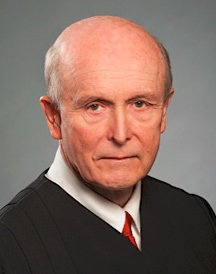Hon. D. Lloyd Macdonald
 Judge D. Lloyd Macdonald was an Associate Justice of the Superior Court of the Commonwealth of Massachusetts from December 2004 until his mandatory retirement in May 2014. He was appointed by Governor Mitt Romney after a 35-year legal career in public and private practice.
Judge D. Lloyd Macdonald was an Associate Justice of the Superior Court of the Commonwealth of Massachusetts from December 2004 until his mandatory retirement in May 2014. He was appointed by Governor Mitt Romney after a 35-year legal career in public and private practice.
Judge Macdonald graduated from Columbia Law School in 1969 and the following year was a Ford Fellow in Criminology at Cambridge University in England. In the early 1970s, he was the Assistant Director of Harvard Law School’s Center for Criminal Justice. Thereafter he was an Assistant District Attorney in Suffolk County (Boston) before becoming an Assistant United States Attorney for the District of Massachusetts and the Chief of the US Attorney’s public corruption squad. In 1983, he entered private practice, and until he was appointed to the bench, Judge Macdonald was a senior partner at Kirkpatrick & Lockhart (now K&L Gates). At K&L Gates, he specialized in securities enforcement, white collar criminal defense, and complex civil litigation. He was also for many years the chair of the Associates and Hiring Committees.
Judge Macdonald is a former co-chair of the Massachusetts Bar Association’s Criminal Law and Procedure Committee, a member of Massachusetts Governor William Weld’s Judicial Nominating Commission and co-founder and chairman of the board of Justice Resource Institute, a mental health and criminal justice reform nonprofit headquartered in Boston. From 2003 to 2008, Judge Macdonald chaired the regional selection panel of the President’s White House Fellows Program.
On the Superior Court, Judge Macdonald sat primarily in Suffolk and Bristol Counties, but also in Worcester and Middlesex. In 2012-2013, he was the Regional Administrative Justice (RAJ) of Bristol County.
As an Access to Justice Fellow, Judge Macdonald will work with the Justice Bridge Legal Access Center at the University of Massachusetts School of Law. The program is designed to address both the legal system’s growing inability to serve consumers of modest means who cannot afford high hourly rates but do not qualify for pro bono legal assistance and the shrinking employment opportunities for recent law school graduates.